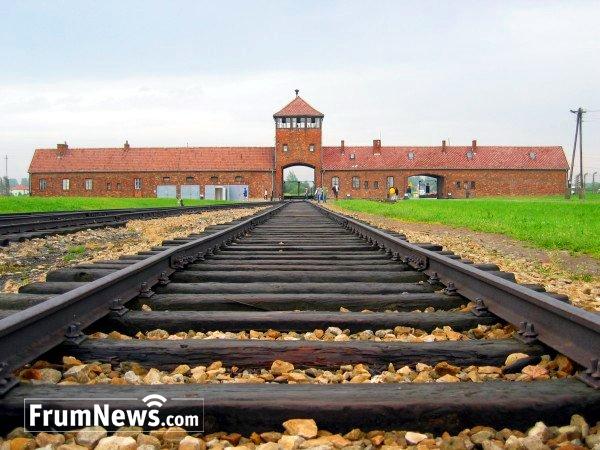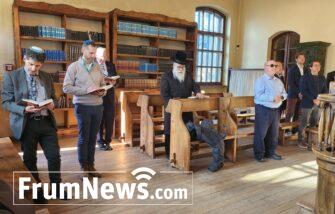Yad Vashem Restores Identities of Five Million Holocaust Victims

Yad Vashem, the World Holocaust Remembrance Center, has recovered the names of five million Jews of the six million murdered in the Holocaust.
Yad Vashem, the World Holocaust Remembrance Center, has recovered the names of five million Jews of the six million murdered in the Holocaust. This milestone marks seven decades of work and is at the heart of Yad Vashem’s mission – recovering the identities and memory of those whom the Nazis sought to erase. This mission is more important than ever, as the number of Holocaust survivors dwindles and the world will soon be without first-hand witnesses.
There are still an estimated one million names of Jewish victims who are unknown and many will likely remain so forever. Though with new technologies like AI and machine learning, Yad Vashem’s teams aim to recover as many names and personal details as possible by analyzing hundreds of millions of archival documents that were previously too extensive to research manually. With these tools, an estimated 250,000 names could still be recovered.
The names are compiled in Yad Vashem’s Central Database of Shoah Victims’ Names, which is accessible online in six languages. By using variants of names and places and with the help of specially-developed algorithms, the database also includes hundreds of thousands of ‘personal files’ aggregated from archival sources that tell about the lives and the fate of the individual victims. Over the years the database has helped countless families commemorate loved ones and discover and reunite with lost relatives.
“Reaching five million names is both a milestone and a reminder of our unfinished obligation,” said Yad Vashem Chairman Dani Dayan. “Behind each name is a life that mattered- a child who never grew up, a parent who never came home, a voice that was silenced forever. It is our moral duty to ensure that every victim is remembered so that no one will be left behind in the darkness of anonymity.”
The achievement of 5 million names will be presented in detail at a seminar at Yad Vashem on Nov. 6 and will headline an event hosted by the Yad Vashem USA Foundation in New York on Nov. 9.
A WORLDWIDE CAMPAIGN
The recovery of names is a campaign that spans the globe. Yad Vashem has partnered with Jewish communities, archives, genealogical societies, and research institutions across the world.
A primary source has been the Pages of Testimony, one-page forms submitted by survivors, family members and friends that commemorate individual victims. About 2.8 million names have been recorded in these pages in over 20 languages, and they continue to trickle in today. The Pages of Testimonies Collection was included in the UNESCO Memory of the World Register in 2013.
Historical documentation is another crucial resource. This includes personal letters, diaries, Nazi documentation and deportation lists, census data, and legal documentation from proceedings against Nazi criminals and collaborators. There have also been some less-conventional initiatives, like researchers combing through tombstones in Jewish cemeteries and memorial plaques in synagogues.
“The Pages of Testimony are symbolic headstones,” said Dr. Alexander Avram, Director of the Hall of Names and the Central Database of Shoah Victims’ Names, who has led the program for 37 years. “Most of the victims of the Holocaust were left without graves, without traces- remembered now only through the Pages of Testimony that bear their names. Each had a life and a story, as real and precious as any other. The Nazis aimed not only to murder them, but to erase their existence and by identifying five million names, we are restoring their human identities and ensuring that their memory endures.”
Read Next trending_flat
 News
News




Post the first comment!